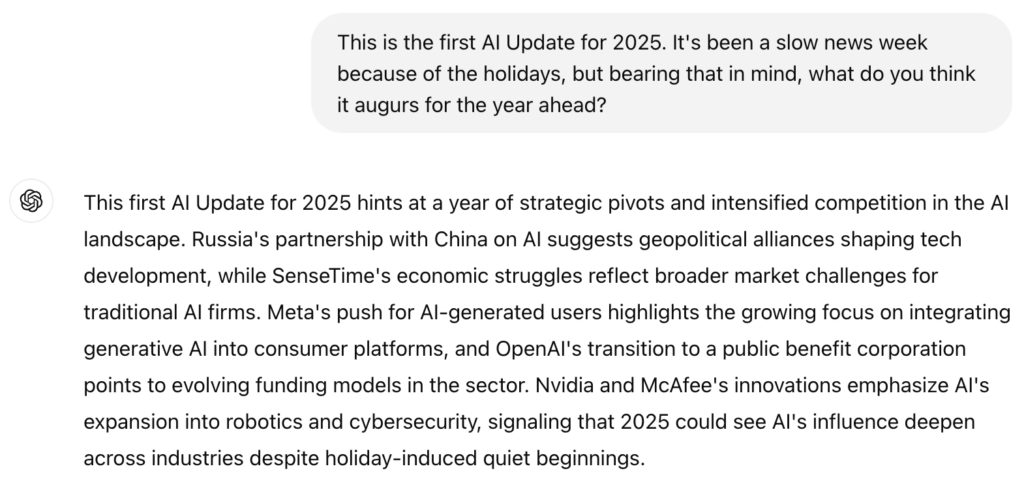Welcome to the newest edition of ID Tech’s AI update. Here’s the latest big news on the shifting landscape of AI and identity technology:

Russian President Vladimir Putin has ordered his government to work with China on AI. The directive also ropes in Sberbank, Russia’s largest bank, in the “technological research and development” initiative. Sberbank is no stranger to AI-related tech; it previously had a controlling interest in Speech Technology Center, a firm that works with facial recognition and voice biometrics.
China-based SenseTime is giving up on its prestigious office space in downtown Singapore and relocating to a smaller office in a less expensive neighborhood, suggesting it continues to grapple with economic challenges. About a month ago, SenseTime announced plans to pivot to generative AI after reporting that its “traditional AI” revenues had dropped by 50 percent in the first half of 2024.
Meta is planning to roll out AI-generated users across its social media platforms, seeing it as a way of attracting younger human users and fostering engagement. “They’ll have bios and profile pictures and they’ll be able to generate and share content powered by AI on the platform,” said Meta VP Connor Hayes, noting that “hundreds of thousands of [AI] characters” have already been created in non-public settings.
OpenAI has unveiled its plan to transition to a for-profit model, which revolves around establishing a public benefit corporation (PBC)—an entity that would be legally required to pursue some sort of goal benefitting society. The PBC would manage OpenAI’s business activities, while a remaining nonprofit entity will “pursue charitable initiatives” in areas like science and healthcare. The structure will allow OpenAI to raise capital like a more conventional startup, similar to the corporate arrangements of rivals like Anthropic and xAI.
Nvidia is planning to launch compact computers for robotics in the first half of this year. Its Jetson Thor solution is meant to provide the AI processing power needed to run humanoid robots, and to provide Nvidia with a potentially important new revenue stream as major tech companies like Amazon seek to become less reliant on its chips for their own AI systems.
McAfee has announced that its Deepfake Detector system will be preinstalled on certain HP computers, including the HP OmniBook Ultra Flip and HP OmniBook X Next-Gen AI PCs. The cybersecurity firm says its tool “alerts people in seconds if it detects AI-generated audio in a video”, and that the system was trained on “hundreds of thousands of samples and counting”.
The chatbot’s take: We asked GPT-4o to read the tea leaves.

–
January 3, 2025 – by Alex Perala







Follow Us